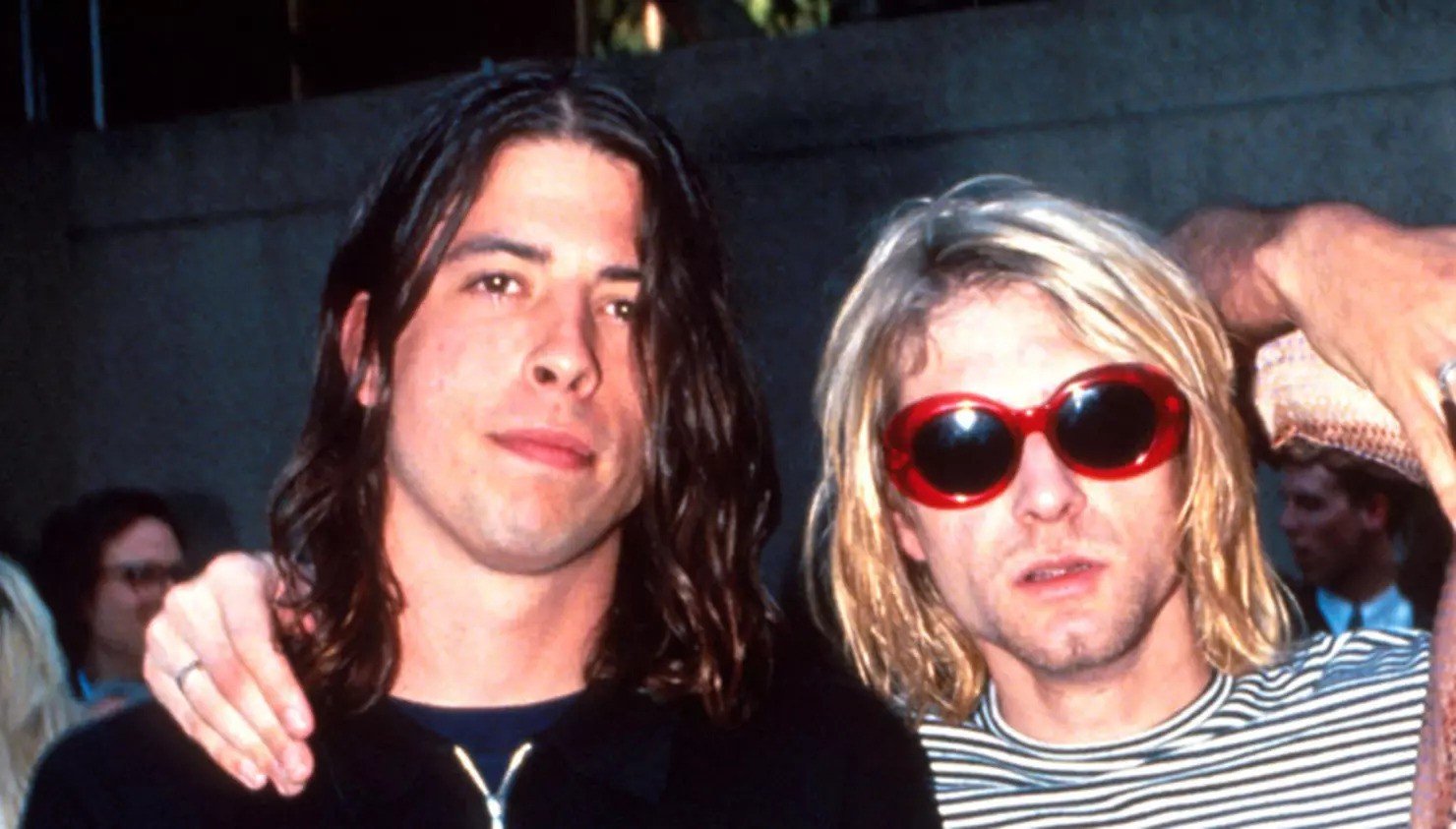Nirvana’s lead vocalist and songwriter Kurt Cobain was a one-trick pony. His depressing antics turned into self-parody as early as 1993 when Noel Gallagher, the guitarist for Oasis, questioned his beliefs in “Live Forever.” The “everything is pointless” cliche became stale and monotonous, and it didn’t help that Cobain frequently used ponderous guitar solos that betrayed his lack of skill and confidence to break up the monotony. He didn’t have to be an expert guitarist to change things up by adding a few more powerful chords to the mix.
This is too bad since sitting behind him was Dave Grohl, who would go on to become one of the all-time great composers. The main person in charge of keeping the rhythm behind the drum kit was Grohl. But he also provided harmony vocals for the tracks. This put him in a good position to reinvent himself as a songwriter when, following Nirvana’s breakup, he joined Foo Fighters. His extensive record collection, which represented the variety of his Irish ancestry, provided him with a wide spectrum of influences.
Grohl said, “I grew up, like most people my age, falling in love with the Beatles, Kiss, Rush, and AC/DC.” While “Learn To Fly” was one of Grohl’s most Beatlesque moments, he never set out to sound like a Beatle—unlike Cobain, who tried so valiantly on the Nevermind album. Rather, he created a voice that was as remarkably unique as the drum sounds that Queens of the Stone Age’s Josh Homme used to pound out.
During the filming of Studio 666, a character study that delves deeply into the world of immobility and contemplative demeanor, Grohl allowed fans to laugh at himself in an uncommon display of self-effacing humor. If anybody can write songs as well as he does, it’s Noel Gallagher, the leader of Oasis who is currently leading a career that depends on unplanned creativity.
Nearly all by himself, Grohl made the debut Foo Fighters album, which covered everything from the liturgies that celebrated the accomplishments of his musical idols (‘Oh, George’, ‘Wattershed’) to the pillars of his upbringing (‘This Is A Call,’ Big Me). It was a very autobiographical work, which makes it no less amazing even if later Foo Fighters albums would downplay the personal to make it more inclusive of the other band members adding depth to the songs and live performances.
Grohl had a devoted lieutenant in Taylor Hawkins who could bring out the strength in his work, and he had a formidable opponent in Pat Smear who could help him reach his full potential. With the help of Krist Novoselic’s accordion playing, Kurt was able to break out from the confines of Nirvana when he recorded the joyful “I Should Have Known It” in 2010.
Grohl’s musical foundations began with melody, but rock eventually gained greater traction. “Then I made this radical shift into underground American hardcore punk rock music, And to me, the allure of that was its unpolished, unproduced, independent qualities. I liked the fact that these people were doing it themselves; they didn’t need a record company.”
Ohl found favor with the more free-spirited method of interpreting the mood of the song and exploring the characters’ thoughts. His dedication to the task shaped his music, implying that even in cases when the subject matter was arcane, being authentic also required being perceptive. Grohl admitted, “There are songs that are very specific, and there are songs that are written with a very general emotion in mind, Sometimes I’ll write a song that’s so vague that an audience will sing along for 16,000 different reasons. I’d hate to exclude someone from a song because it’s about someone they don’t know.”
Noel Gallagher follows suit with his work, arguing that a song shouldn’t be made available to a wider audience if it is too personal. The goal of music is to invite inclusion into the wider world. Even if a piece of art may appear unwavering, it must be inclusive to spread widely and become incredibly popular.
However, it is exactly because Grohl is content to draw from the more commercial and esoteric facets of his record collection, obviously motivated by the desire to produce music that appeals to both audiences. It’s unclear at this moment if Foo Fighters will tour without Hawkins, but Grohl should keep writing new songs nonetheless, especially in light of the current epidemic.
Grohl is involved in a wide range of opaque and muscular activities; he is all that the nihilistic Cobain was not, or at least never demonstrated during his all too brief existence on Earth. However, perceptions ought to be founded on the work, not the artist, and Grohl’s collection is more comprehensive and varied than Nirvana’s.
